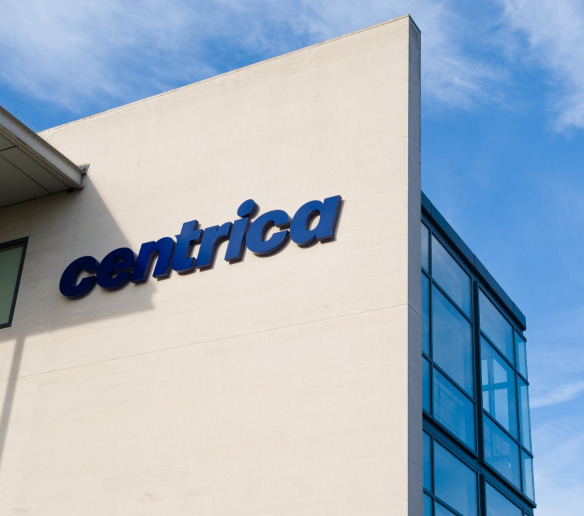Centrica slumped to a £849 million loss in 2019, a performance it blamed on Ofgem’s energy price cap for creating a “challenging environment”.
The company, which owns ‘Big Six’ supplier British Gas, saw its profits evaporate during the year ending 31 December 2019. Adjusted operating profit and adjusted earnings per share were both down 35%, and adjusted operating cash flow also suffered, down 18% year-on-year.
In early trading today Centrica’s share price slid by more than 15% to a price of £71.67.
It argued that its adjusted operating cash flow, which stood at £1,830 million was within Centrica’s 2019 targeted range of £1.8-2.0 billion. Additionally, its closing net debt, which sat at £3,181 million was within its targeted range of £3.0-3.5 billion.
Its pre-tax statutory operating loss of £849 million was down from a profit of £987 million in 2018. The announcement of the results sent Centrica’s shares down 15% early on Thursday (13 February).
The utility quoted a tough operational environment in the UK for its falling profits, in particular the UK default tariff cap that was introduced last year. Centrica argued the cap led to a £300 million negative revenue impact, contributing to its struggling consumer side.
Additionally, the company quoted low natural gas prices and outages at two of its nuclear power plants as factors contributing to its continued decline in profits. Both Hunterston B and Dungeness B nuclear power stations experienced extended outages.
Centrica group chief executive Iain Conn, who is standing down later this year, said that the operating profit and earnings across the company had been materially impacted by a “challenging environment”, specifying that this was most significantly created by the price cap’s implementation and falling natural gas prices.
“Against this backdrop Centrica delivered growth in customer accounts, higher net promoter scores, significant cost efficiencies in excess of our target, and full year adjusted operating cash flow and net debt within its target ranges. As expected, performance during the second half was much improved compared to the first half, demonstrating momentum as we enter 2020.”
Overall, Centrica’s customer numbers grew by 3% thanks to increases in its customer services, with UK home accounts up 78,000. But its supply losses continued, with a decrease in 286,000 customers, although this is less than in 2018 and on target with predicted losses announced in November 2019.
Going into 2020, the company says that it will continue to exit oil and gas, as well as nuclear as it refocuses its business. It is intending to become an international Energy Services and Solutions provider, and says it will focus on its “distinctive strengths” in energy supply and optimisation, services and solutions with an emphasis on the transition to a lower carbon future.
Centrica expects an adjusted operating cash flow in 2020 to be in the range of £1.6-1.8 billion.
These poor annual results come after successive news of the company’s struggles in recent years. Last July, Conn announced that he will leave the company in 2020, following a halving of the company’s operating profits and pressure from shareholders.
Centrica’s 2018 financial results sent its share price tumbling to a 20 year low, after it confirmed that the incoming price cap would create challenges for the company. While the previous annual financial statement led to the company cutting over 4,000 jobs when it was released in February 2018, due to the company’s “weak” performance.






